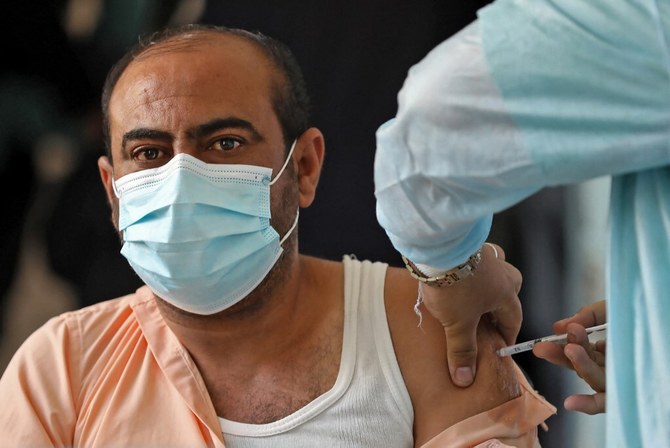JEDDAH:
The Iran-backed Houthi militia was accused on Tuesday of risking lives in northern Yemen by blocking people’s access to coronavirus vaccines.
Houthi leaders have suppressed information about the dangers of COVID-19 and the prevalence of the disease in territory under their control, including the capital, Sanaa, Human Rights Watch said.
“Since the start of the pandemic in Yemen in April 2020, Houthi officials have actively spread disinformation about the virus and vaccines,” the rights group’s deputy Middle East director, Michael Page, said.
“The deliberate decision of the Houthi authorities to keep the real number of cases of COVID-19 under wraps and their opposition to vaccines are putting Yemeni lives at risk.
“Pretending COVID-19 does not exist is not a mitigation strategy and will only lead to mass suffering. Given the weakened healthcare system in Yemen, Houthi authorities should at least ensure transparency so that civilians living in their areas can understand the scale of the pandemic and facilitate an international vaccination plan that meets the needs on the ground.”
Yemen received 360,000 doses of the AstraZeneca vaccine on March 31, the first of 1.9 million doses to be delivered this year through the Covax program for poorer countries. Yemen’s COVID-19 vaccination campaign began in government-held areas on April 20, giving a boost to a healthcare system shattered by war, economic collapse and a shortfall in humanitarian aid funding.
A batch of 10,000 of those doses intended for Houthi-run areas has been caught up in wrangling between parties over how it would be administered, according to humanitarian aid sources and Yemeni officials.
The World Health Organization’s representative in Yemen, Adham Abdel-Moneim, said the 10,000 vaccine doses had arrived at Sanaa airport on Monday and were now in cold storage.
Houthi authorities, who control Sanaa and most major urban areas in northern Yemen, have provided no coronavirus infection or fatality figures since a couple of cases in May 2020. But numbers of confirmed cases in the rest of Yemen started to rise rapidly in mid-February.
The government’s emergency coronavirus committee has recorded 6,742 coronavirus infections and 1,321 deaths so far, although the true figure is widely thought to be much higher as the war has restricted COVID-19 testing and reporting.
Senior Houthi leaders have dismissed the coronavirus as a conspiracy. “America bears the primary responsibility for the COVID-19 epidemic,” militia chief Abdul Malik Al-Houthi said last year.


























